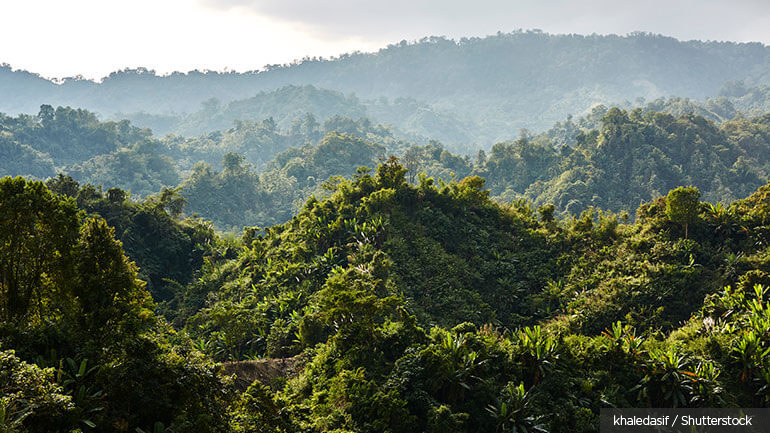
In the Chittagong Hill Tracts (CHT) of Bangladesh, local communities rely on forests and agriculture for their livelihoods. For centuries, these landscapes have provided local and regional benefits such as food, energy, timber, water, health, and supported national revenue generation. However, over the last few decades, with increased pressures from population growth and market demands, agricultural systems have experienced a decline in yield, threatening food security. The intensification of agriculture has also led to the degradation of forest resources, putting biodiversity conservation and environmental stability at risk.
PROGREEN’s knowledge program supports the Government of Bangladesh and small ethnic communities in sustainably managing selected hill landscapes in the Chattogram Hill Tracts (CHT) to help restore the provision of ecosystem goods and services while increasing socio-economic benefits. Under the program, PROGREEN will facilitate policy dialogue with local communities, Indigenous Peoples, and regional and national institutions to identify policy gaps and other shortcomings. These insights, along with analyses of forest management and land-use modeling, will inform the development of land-use management and investment plans and prototypes for climate-smart and green infrastructure.
Under the PROGREEN activity, The Arannyak Foundation (AF) prepared a Landscape Management Plan for the Reinkhyong Reserve Forest (RRF) in the Chittagong Hill Tracts (CHT). AF conducted 25 stakeholder meetings with almost 250 participants cross ministries, local communities, and other stakeholders. In addition to the management plan, the results from AF's work resulted in three draft policy papers, which they shared with the Bangladesh Forest Department.
In FY24, two other components of the activity, including a methodology study on ecosystem valuations by East West University and a 'Strategic and Tactical Planning System for the Coastal Greenbelt Zones in Bangladesh' developed by the Centre for Environmental and Geographic Information Systems (CEGIS), were carried out as feasibility studies for further work in the area. The report produced by CEGIS examined potential areas of conflict and threats and emphasized community involvement as a way forward with the Bangladesh Forest Department (BFD), other NGOs, development partners, and stakeholders.